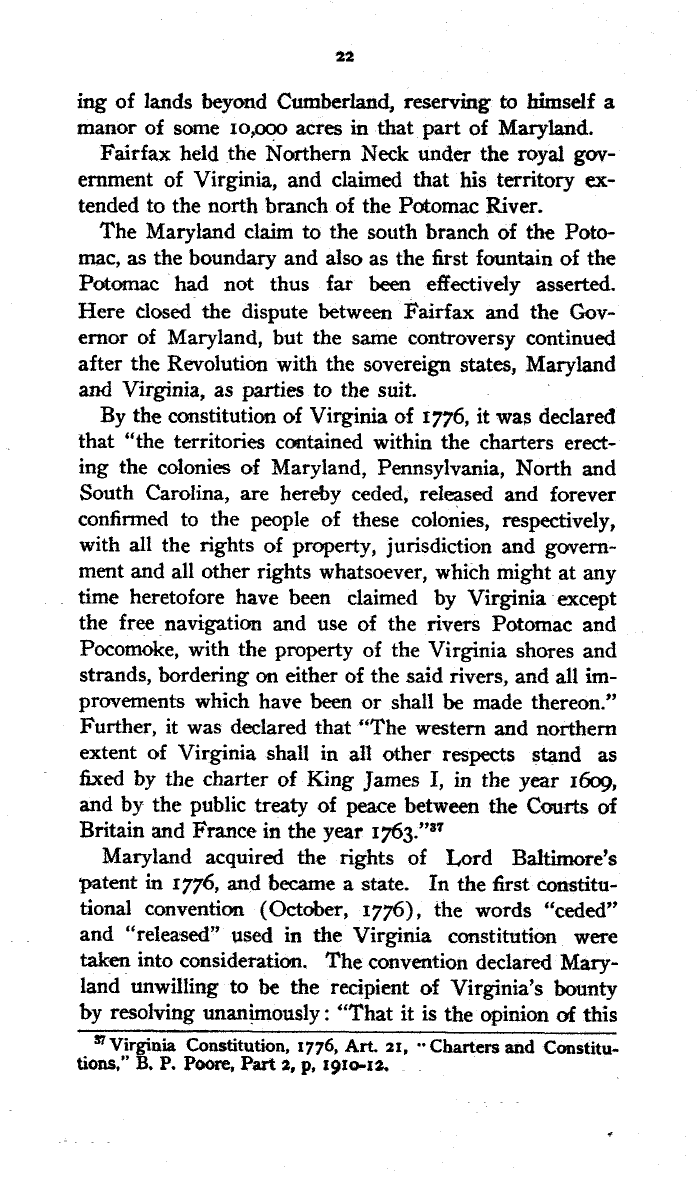| 22
ing of lands beyond Cumberland, reserving to himself a
manor of same io,aoo acres in that part of Maryland.
Fairfax held the Northern Neck under the royal gov-
ernment of Virginia, and claimed that his territory ex-
tended to the north branch of the Potomac River.
The Maryland claim to the south branch of the Poto-
mac, as the boundary and also as the first fountain of the
Potomac had not thus far been effectively asserted.
Here closed the dispute between Fairfax and the Gov-
ernor of Maryland, but the same controversy continued
after the Revolution with the sovereign states, Maryland
and Virginia, as parties to the suit.
By the constitution of Virginia of 1776, it was declared
that "the territories captained within the charters erect-
ing the colonies of Maryland, Pennsylvania, North and
South Carolina, are hereby ceded, released and forever
confirmed to the people of these colonies, respectively,
with all the rights of property, jurisdiction and govern-
ment and all other rights whatsoever, which might at any
time heretofore have been claimed by Virginia -except
the free navigation and use of the rivers Potomac and
Pocomoke, with the property of the Virginia shores and
strands, bordering on either of the said rivers, and all im-
provements which have been or shall be made thereon."
Further, it was declared that "The western and northern
extent of Virginia shall in ail other respects stand as
fixed by the charter of King James I, in the year X609,
and by the public treaty of peace between the Courts of
Britain and France in the year 1763."$'
Maryland acquired the rights of Lord Baltimore's
patent in X77$, and became a state. In the first constitu-
tional convention (October, a776), the words "ceded"
and "released" used in the Virginia constitution were
taken into consideration. The convention declared Mary-
land unwilling to be the recipient of Virginia's bounty
by resolving unanimously: "That it is the opinion of this
37 Virginia Constitution, 1776, Art. at, ^ Charters and Constitu-
tions," B, P. Poore, Part a, p, I9IO-I2.
|

